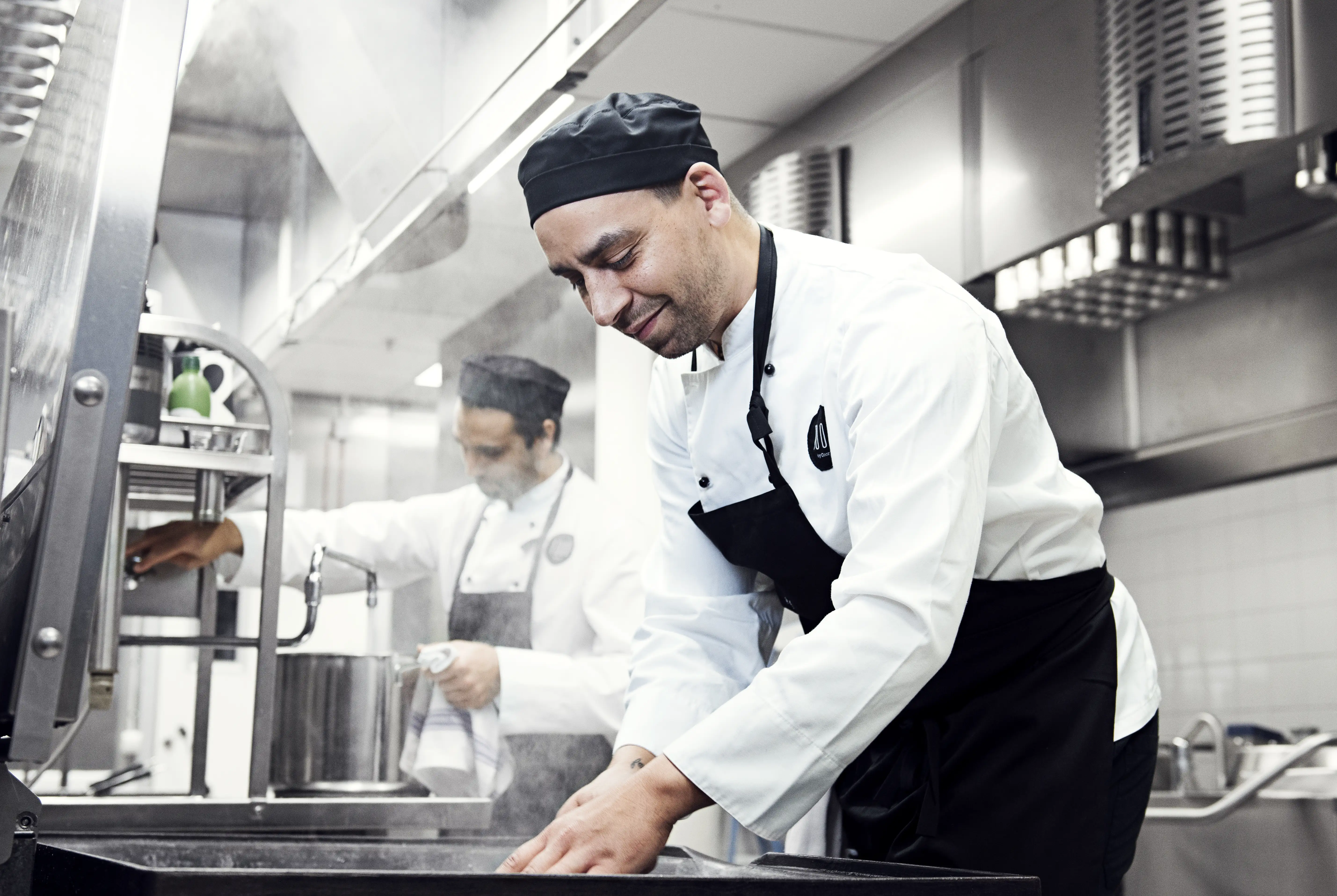 You probably recognize yourself; when you are sick, you lose your appetite and it can feel difficult to eat. The sense of smell is affected, food rarely tastes as good and it can be difficult to both chew and swallow. However, when you're sick, it's perhaps more important than ever that your body gets the nutrients and energy it needs.
You probably recognize yourself; when you are sick, you lose your appetite and it can feel difficult to eat. The sense of smell is affected, food rarely tastes as good and it can be difficult to both chew and swallow. However, when you're sick, it's perhaps more important than ever that your body gets the nutrients and energy it needs.
Michaela Signorelli Wallin from Coor is responsible for the operations that prepare and serve all patient meals at Karolinska University Hospital in Solna.
"We create food that does good," she says. It should taste good, look good and also meet the different needs of patients.
Few things have had such a bad reputation as "hospital food" and it was a challenge that Coor was happy to accept. At the end of 2018, a completely new concept was launched at Karolinska with a focus on the meal experience. The food is now served tasty and fragrant, in a way that excites the appetite and stimulates increased eating.

Michaela and her team have composed a well-thought-out menu.
"The food should feel homemade, because that makes you feel safe," she says. We cook everything from scratch in the kitchen at Karolinska with fresh ingredients that are largely organic and Swedish. For example, we only use Swedish poultry, MSC-labelled fish and eggs from free-range hens. We even make our own ice cream here!
The focus is on food that patients like, but with "an extra little twist". We make an effort to ensure that many different age groups and different nationalities find food they recognize on the wide menus," she continues. "There is something for all tastes, the opportunity to try something new every day or choose a favorite in replay. She also talks about the unique children's menu that offers endless combination possibilities... to the taste of the pickiest little patient.
"We also serve so-called 'wishful food' with, for example, hamburgers and pizza. Just to actually get something - whatever it is - can make a crucial difference for those who have been unlucky and become ill!"
All portions served at the hospital are of course nutritionally calculated down to the smallest detail together with dieticians to ensure that the content is as good as possible for the patients, even for those who need special diets.
"We offer good food that we like ourselves and that we can stand for," Michaela explains. Over the years, she has learned what food works and is happy to share her best tips with those who are sick and need to eat.
The Swedish health-care information page 1177.se states that "The food you eat while in hospital is part of your treatment." Keep in mind that this also applies if you are sick at home; Eat and drink! And choose good food that does you good!

 You probably recognize yourself; when you are sick, you lose your appetite and it can feel difficult to eat. The sense of smell is affected, food rarely tastes as good and it can be difficult to both chew and swallow. However, when you're sick, it's perhaps more important than ever that your body gets the nutrients and energy it needs.
You probably recognize yourself; when you are sick, you lose your appetite and it can feel difficult to eat. The sense of smell is affected, food rarely tastes as good and it can be difficult to both chew and swallow. However, when you're sick, it's perhaps more important than ever that your body gets the nutrients and energy it needs. 



